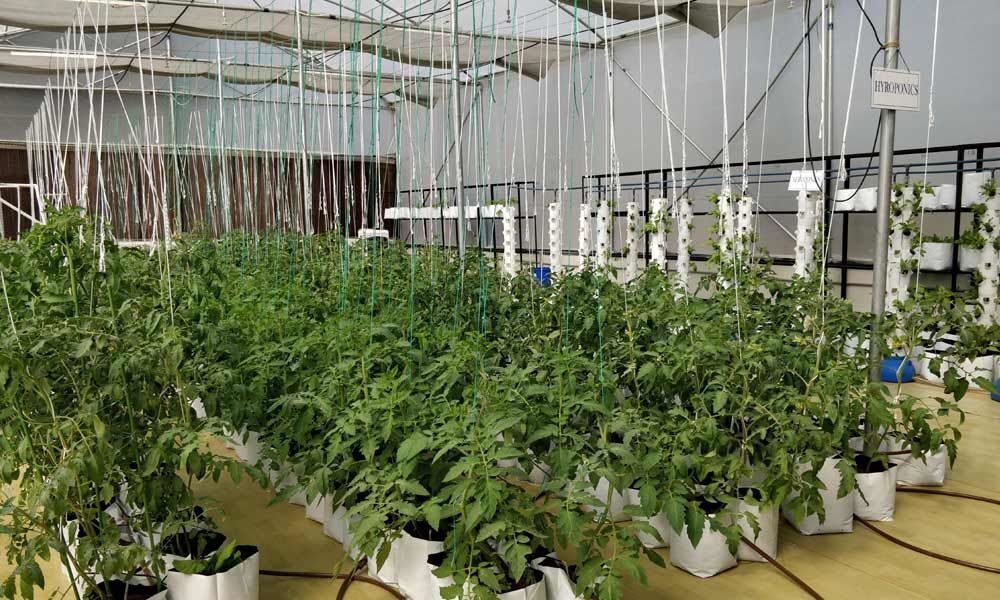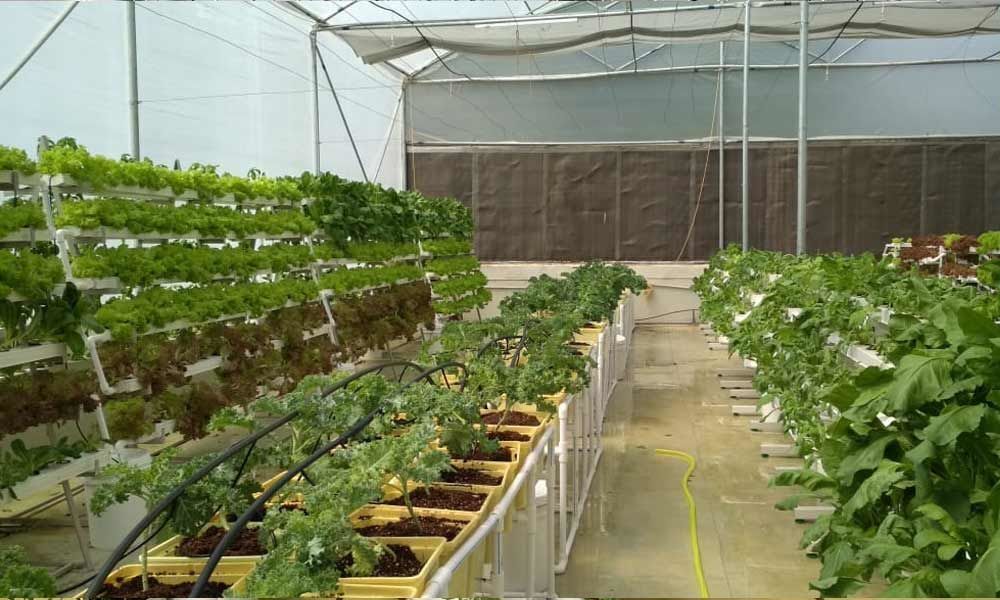Vertical farms to scale up traditional farming
While the Horticultural department has been trying to promote rooftop gardening in the city, a startup Urban Kisaan has come up with a new concept.
Jubilee Hills: While the Horticultural department has been trying to promote rooftop gardening in the city, a startup Urban Kisaan has come up with a new concept.
The first commercial vertical farm is expected to be launched at Jubilee Hills Road no. 36 on April 6.
It has a capacity of producing 50,000 crops coming up to 10 tonnes of production every month.
The farm spread over 2500 sq.
feet would yield vegetables equivalent to 70,000 sq feet in traditional farming.
The fact that this is done vertically opens up a plethora of possibilities and it is undeniably a boon to the future, with depleting resources like land and water.
A farm for research and development purposes has already been set up at Shamshabad.
Urban Kisaan is a startup that helps people grow leafy vegetables and herbs in little place using less soil with concepts of vertical and hydroponic farming.
They help people in commercial as well as non-profit making farming.
There is an increase in the metal levels in our daily food due to the use of contaminated water and soil which may cause various health issues.
One can grow lettuce, strawberries, fresh mint, kale, Swiss-chard, spinach, basil, tomatoes and many other vegetables at home.
All that the 'home-farmer' needs to do is spend 15 minutes every week on it.
There are different kits for the customers to choose from. Starting from 18 plant kit to 36 plant kits ranging from Rs 5,000 to Rs 50,000.
It is a one-time investment and is a convenient way of farming which requires very less manual intervention.
Vihari Kanukollu, CEO of Urban Kisaan, said, "We manage everything from the seeds, its proprietary, to farm-controlling software system.
The farming technique allows plants to grow with only water mixed nutrients, enabling farms to move into these abandoned spaces in cities and create new jobs and industry."
Urban Kisaan is one in the top 100 social entrepreneurs in India stated by AFI forum and one of the top 8 startups by Discovery India for the documentary series called 'planet healers' which will be aired on March 29.
By 2050, the world will need to feed more than 9 billion people requiring us to produce 70% more food than what we consume today.
On the other hand, 40% of the water demand will not be met by 2030 and 20% of the arable land is degraded already.











